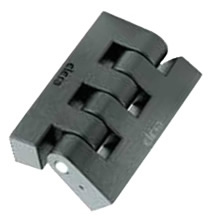
Hinges come in a variety of materials. While most of the materials in which they are made consist of metals and alloys, you can find them in plastic as well. Plastic hinges are defined by their plastic construction. They aren’t made of metals or alloys. Rather, they are made of plastic. Below are five things to consider when choosing plastic hinges.
#1) Living or Non-Living
Plastic hinges can be classified as either living or non-living, depending on whether or not they have knuckles. Non-living hinges have knuckles, whereas living hinges don’t have knuckles. Without knuckles, living hinges don’t require the use of a pin. They are made of a single piece of plastic that’s able to bend and flex to achieve a limited angle of rotational movement.
#2) Torque Resistance
You should consider torque resistance when choosing plastic hinges. While strong and durable, plastic hinges aren’t immune to physical damage. They can crack or otherwise damage when exposed to extreme torque. Torque resistance is a measurement of how much torque a plastic hinge can safely withstand. Hinges are often used to connect heavy objects, such as doors. Therefore, they need a high level of torque resistance.
#3) Size
Of course, you should consider the size when choosing plastic hinges as well. Like all hinges, plastic hinges are available in a wide range of sizes. You’ll need to choose a size that’s appropriate for the application in which you intend to use. Pay attention to the center-to-center measurement as well as the height and length when shopping for living hinges.
#4) Fastener Holes
Most plastic hinges have holes for fasteners. To install a hinge, you’ll need to drive fasteners through these holes and into the two workpieces that you are trying to join. Some plastic hinges, though, have more fastener holes than others. The placement of these fastener holes can also vary. Therefore, it’s a good idea to consider the fastener holes when choosing plastic hinges.
#5) Angle of Rotation
Finally, you should consider the angle of rotation when choosing plastic hinges. All hinges have an angle of rotation. The angle of rotation refers to angle at which a hinge can open. Some plastic hinges have a 0 to 70-degree angle of rotation, whereas others have a wider angle of rotation. Regardless, you should check the angle of rotation whe choosing plastic hinges to ensure it meets the specifications for your application.
